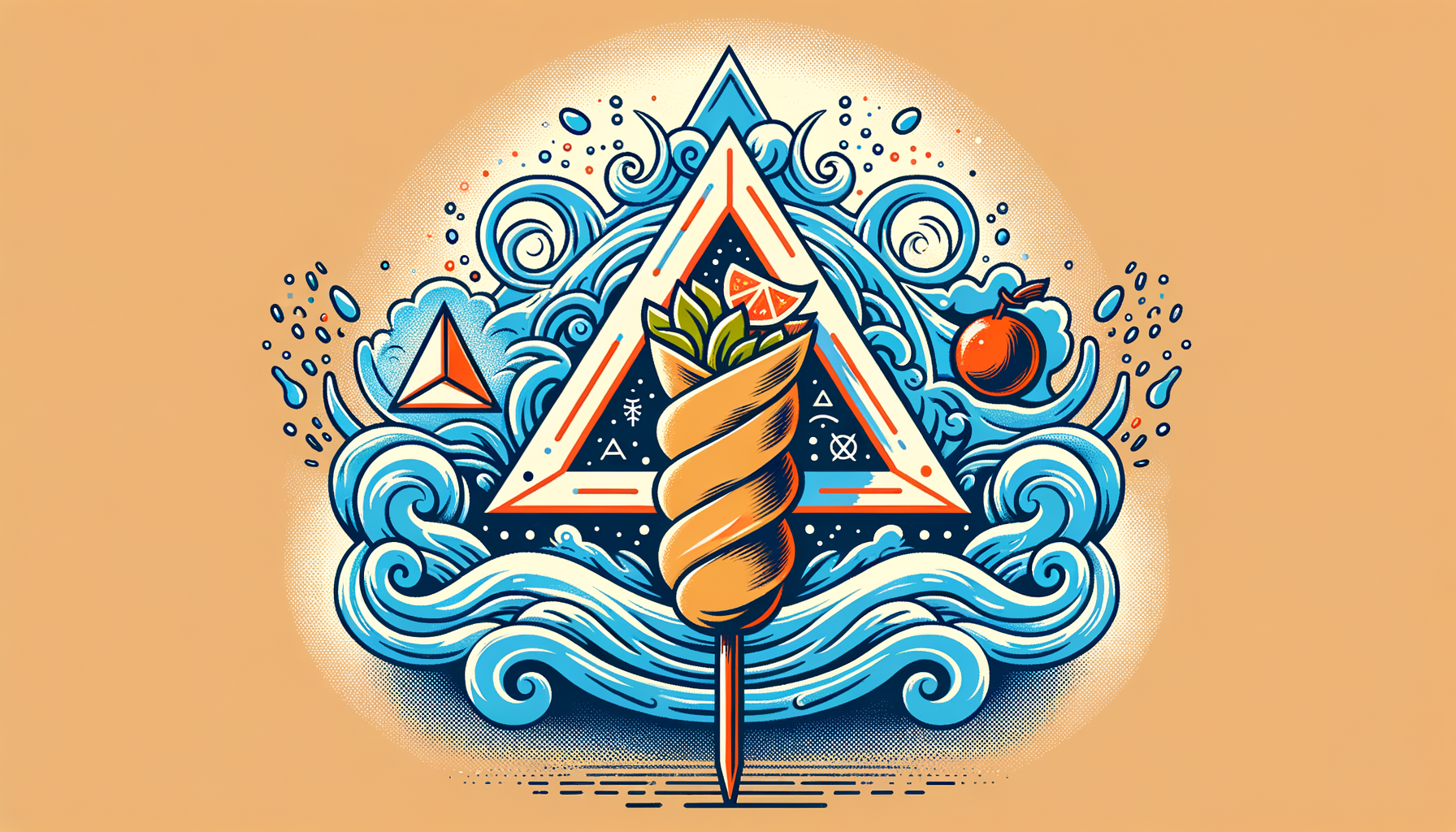There’s a saying my grandmother used to repeat that roughly translates to, “A true friend is rarer than a sip of wine during a drought.” I never fully appreciated her words—though wine and drought are things Greeks take very seriously—until I met Aris. You could say he was my “sip,” though instead of wine, he came in the form of a lanky, loose-limbed guy slouching at the corner table of my family’s taverna in Athens. A quiet presence with a grin that could charm the sourest of grandmothers, Aris became the friend who shattered my assumptions, reshaped my outlook, and steered my life in a very unexpected direction.
Let me tell you about how a random act of kindness (and a possibly stolen souvlaki) changed the trajectory of my life.
The Takedown of “Perfect Dimitri”
Back then, I was chasing what I thought was success. My life was a blueprint: Philosophy degree at the University of Athens? Check. Late nights debating Aristotle with other overcaffeinated twenty-somethings? Check. Juggling family expectations while pretending I had every part of my life planned out? Double check. I was the guy people called dependable, practical, maybe even “perfect.” What they didn’t see was that my perfectionism wasn’t ambition—it was me, clinging to certainty because uncertainty felt like chaos.
Aris came into my life to stir that pot. He debuted as a walking contradiction. An aspiring musician with a perpetually broken guitar case, no fixed address, and a devil-may-care attitude, Aris radiated a kind of grounded confidence I envied. He had what I lacked: an ability to dive headfirst into the unpolished moments of life and make joy from chaos. Our friendship began the night he waltzed into my family’s restaurant for dinner and left without paying his bill.
Now, I’d like to believe that Greek hospitality includes a healthy dose of forgiveness—and free ouzo—but hospitality apparently has its limits. When my father angrily recounted the tale over breakfast the next morning, I decided to track Aris down.
Three neighborhood inquiries, one stray dog chase, and a generous dose of secondhand embarrassment later, I found him at the park. I was ready with a long, dramatic speech about honesty and honor (you know, the kind that fits neatly between Plato’s ethics and a bad melodrama). Before I could get the words out, Aris smirked and said, “I wondered when you’d find me. You look like a guy who can’t let things slide.”
Turns out, he’d only “forgotten” to pay because he was so caught up in trying to impress a girl at the nearby table. While I was busy berating him, he handed me the cash for the bill, then asked if he could take me out for coffee as an apology. Looking back, I probably should have said no. Good people don’t reward souvlaki heists with caffeine. But something about him—his openness, his refusal to take either of us too seriously—was disarming.
The Philosophy of Good Enough
Aris introduced me to the idea of “good enough.” For a recovering perfectionist like myself, this felt sacrilegious. On lazy afternoons in Athens, we'd sit at a curbside café with chipped mugs and too-sweet frappés. He’d gesture at the crowds bustling around us, telling me, “Most people are living, you’re analyzing living. Stop climbing Plato's ladder for five seconds and drink your coffee like a human, Dimitri. Just be.”
It was infuriating. But it was also liberating. Under his influence, I tried things outside my meticulously curated comfort zone—karaoke nights, day trips to nowhere, conversations with strangers who barely spoke Greek but smiled like they had something important to say. He taught me a lesson I didn’t find in any Philosophy syllabus: that life doesn’t wait for you to draft the perfect plan, so you’d better join the dance, even if you don’t know the steps.
Turning a Detour Into a Life Path
One of the biggest changes Aris brought to my life was how I viewed “failure,” a concept that once terrified me. During the summer after my Philosophy degree, I was ready to step into a cushy post-grad internship that would put me on a path to…well, even I wasn't sure. Corporate respectability? Maybe. A soul-sucking desk job? Likely. When Aris heard about it, he scoffed.
“Why are you running headfirst into a life you’re dreading?” he asked, sprawled lazily on my couch while strumming his perpetually out-of-tune guitar. “You’ve got one of the sharpest minds I know, but you can’t even tell when you’re sabotaging yourself. Do something that excites you for once.”
It felt naive to take advice from a guy whose weekly income was largely dependent on impromptu street performances, but his words stuck with me. Eventually, after weeks of restless pacing and far too many glasses of wine, I took a risk. I turned down the internship, decided to work a summer at a boutique hotel on Santorini, and figured I’d use the time to reassess. That single decision opened up a whole new chapter—and continent—later in life.
Santorini became Crete, which became travel memories across Europe and connections I never would’ve made if I hadn’t dared to veer off track. And here I am today, writing for a living and reminiscing about a friend who, through his messy, wonderful example, taught me to stop fearing the so-called wrong turns in life.
What Aris Taught Me About Friendship
Friendship, as I learned from Aris, isn’t just about similarities—it’s about balance. He wasn’t better or wiser or “more right” than me. Instead, he challenged me in ways that stretched my worldview while letting me challenge his in return.
- A true friend gives you permission to be messy: Whenever I spiraled into my overthinking tendencies, Aris had a way of joking me back into the present moment. There’s nothing like someone saying, “You’re about ten minutes of monologuing away from turning this into a lifetime movie,” to bring you back to earth.
- They pull you out of yourself when you’re spiraling: Aris had no formal education in philosophy, but his musings were often more raw and real than those of my university professors. Once, while consoling me over an argument I had with an ex, he shrugged and said, “Love flows, D. People don’t betray you; they just move to where their flow feels freer. You’ve got to figure out whether you’re okay swimming in their stream, or if you’d rather find your own.”
- They celebrate your evolution but never let you forget your roots: Years later, when I confessed to Aris that I didn’t think I was cut out for writing (imposter syndrome, thy name is Dimitri), his reply was blunt: “Mate, you’ve literally spent years intellectualizing and romancing life situations. Start writing as though you’re chatting with me and trying to make me laugh.”
The Parting of Ways
As with many friendships, life inevitably took Aris and me in different directions. Last I heard, he was backpacking through South America with someone he described as “a kindred spirit who bakes bread.” We occasionally exchange messages through mutual friends, but our paths are no longer as intertwined as they once were.
Yet, thinking of Aris always reminds me to keep myself pointed toward the horizon. The friend who changed my life not only altered my perception of what mattered most, but he also reminded me that, sometimes, the best things in life can’t be planned—they can only be lived.
Take the Leap. Find Your Aris.
If you’re lucky, you’ll meet someone like Aris in your lifetime—a friend who swipes left on your anxieties and gently (or not-so-gently) nudges you toward discovering your truer self. Remember: true friendships, like true love, don’t always come gift-wrapped or scripted. Sometimes, they’re loud and messy, interrupting your perfect plan with souvlaki theft and unsolicited wisdom.
And to those wondering how to find your equivalent of Aris? Just stay open. Go to the new café, let your neighbor convince you to join the book club, or say yes to the karaoke mic. You can’t control where serendipity takes you—but when the right friend crashes into your orbit, believe me, you’ll know.




















